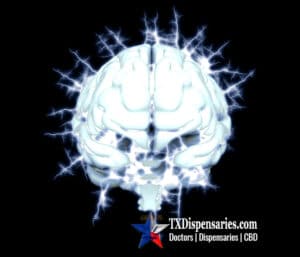
Medical Marijuana As A Diabetic Neuropathy Treatment
-
Medical marijuana is being used to treat diabetic neuropathy in Texas
-
It is effective at relieving neuropathic pain
-
Diabetic neuropathy causes and treatments
-
Texas residents suffering with this painful condition might find relief
-
Getting access to Texas medical marijuana
Diabetic neuropathy is now one of the qualifying conditions to get High CBD medical marijuana in Texas. Dealing with diabetes is hard enough without being in constant pain. However, the good news is that many neuropathy patients in Texas are finding relief with medical marijuana.
So, what is neuropathic pain, and how does cannabis work to reduce the chronic pain suffered by neuropathy patients? Let’s look at this more closely.
What Is Diabetic Neuropathy?
Diabetic neuropathy, one of the many complications of diabetes, is characterized by severe nerve damage. The condition most commonly affects the nerves in legs and feet. However, the pain can run rampant through all neural pathways, causing blindingly sharp pains, extreme tingling, and numbness.
Sadly, nearly 50 percent of all diabetics experience some form of neuropathy. The condition generally manifests in individuals who have had the disease for a prolonged period. Often, the symptoms may not arise until there is already substantial, irreversible damage to nerves.
There is no determination as of yet of the exact cause of neuropathy. Some researchers believe that high blood sugar, over a period of time, depletes the nerves of oxygen and nutrients, thus interfering with the signals transmitted via the neural pathways.
The risk of diabetic neuropathy increases the longer one has diabetes, especially if blood sugar is not kept under control.
Four Types Of Neuropathy
There are actually four different types of neuropathy which are characterized by their effects on various parts of the body.
Peripheral neuropathy
Peripheral neuropathy, also known as distal symmetric peripheral neuropathy, affects almost 20 million people in the U.S. and is the most common form of the condition. This ailment generally affects the legs, feet, hands, and arms. Symptoms of peripheral neuropathy are frequently far worse at night. Patients often suffer with tingling, stabbing pain, cramping, or numbness. In some cases, it can also affect the skin resulting in foot ulcers and infections.
Autonomic neuropathy
The heart, bladder, intestines, stomach, reproductive organs, and eyes are all controlled by the autonomic nervous system. When there is damage to the nerves, it may cause a multitude of symptoms such as hypoglycemia, nausea, bowel problems, loss of appetite, eye issues, and sexual dysfunction.
Proximal neuropathy (diabetic polyradiculopathy)
Also known as diabetic amyotrophy, proximal neuropathy causes excruciating pain in the nerves of the thighs, hips, legs, chest, and abdomen. Proximal neuropathy may also cause severe stomach ache, weaken muscles, and decreased mobility.
Mononeuropathy (focal neuropathy)
There are two forms of mononeuropathy — cranial and peripheral. Mononeuropathy can lead to double vision, Bell’s Palsy, eye pain, numbness, and weakness in hands.
Treating Neuropathic Pain With Medical Marijuana
Various studies have indicated that compounds in medical marijuana such as tetrahydrocannabinol (THC) and cannabidiol (CBD), can be effective at treating focal and proximal neuropathies and may be an effective remedy for some patients dealing with neuropathic pain, twitching, cramping, sweating, muscle weakness, and trouble sleeping due to pain.
CBD is known for its powerful pain killing properties and THC for its ability to manage pain and induce relaxation.
Although opioids have historically helped patients with neuropathy, the side effects are unpleasant and have long term effects on overall health.
Opioids, unlike marijuana, are also highly addictive. Marijuana offers effective pain relief with minimal side effects — that aside from lethargy and intoxication which are often the result of excessively high doses.
The benefits experienced by neuropathy patients are primarily due to the effects of these plant-based cannabinoids on our own innate endocannabinoid system (ECS).
Peripheral nerve cells contain cannabinoid receptors. These receptors regulate the neurotransmitters and central nervous system and are responsible for managing pain signals. When CBD and THC enter the bloodstream, these receptors are activated.
Medical marijuana has been known to improve conditions that lead to autonomic neuropathy. And studies also report that cannabis even has regenerative properties, and may actually repair ravaged nerve cells and retard neurodegeneration.
In technical terms, marijuana apparently inhibits the production of NF-kb and cytokines, thus decreasing nociceptive pain and inflammation. And CBD is thought to help reduce pain and also protect the myelin sheath covering the nerves.
Research Studies On Medical Marijuana And Diabetic Neuropathy
Several studies have been undertaken to determine the effectiveness of marijuana at treating both the causes and symptoms of diabetic neuropathy. Links to these studies and more can be found at the end of the article.
A 2010 study showed that ingesting 25 mg of 9.4 percent THC content cannabis, three times a day, five days a week, resulted in a reduction in pain intensity and improved sleep.
- Research from 2013 comparing the efficacy of medical marijuana to standard treatments indicated that marijuana reduced pain effectively at small to medium dosages
- In another study from 2007, patients reported a reduction in pain even at low dosages. The study also indicated that marijuana helped to reduce even the most acute pain. In fact, marijuana was shown in certain cases to be even more effective than pharmaceuticals such as tricyclic antidepressants, anticonvulsants, and various other neuropathic medications.
- In 2016, the American Diabetes Association (ADA) studied the effect of CBD and tetrahydrocannabivarin (THCV) in patients with Type 2 diabetes. The study reported THCV improved pancreatic function and decreased fasting blood glucose (blood sugar).
- A study published in the Journal of Pain in 2016 reported that patients with spinal cord injuries who consumed vaporized marijuana experienced dramatically reduced pain.
- A 2012 study showed cannabis could also have a role as a neuroprotectant. This study indicated that rats, after ingesting cannabis, developed a neuroprotective response aiding in the healing of damaged neurons.
- The results of an experiment performed on diabetic mice in 2010 suggested that treatment with medical marijuana at the onset of diabetes might offer a preventative benefit in addition to neuroprotection.
- A study published in 2008 showed that both low and high strength marijuana relieved neuropathic pain compared to the placebo. According to one of the authors, “this study adds to a growing body of evidence that cannabis may be effective at ameliorating neuropathic pain and may be an alternative for patients who do not respond to or cannot tolerate other drugs.”
- And finally, a clinical study undertaken in 2015 consisted of 16 patients with diabetic neuropathy.
Participants received various doses of cannabis or a placebo and then were asked to rate their pain on a scale of 1 to 10. Participants given a placebo had a 53% reduction in pain while participants treated with low-strength marijuana reported a 64% reduction in pain, medium-strength marijuana resulted in a 65% reduction in pain, and high strength marijuana produced a 70% reduction in pain.
Marijuana Strains And Delivery Methods Available In Texas For Treating Diabetic Neuropathy
Under Texas medical marijuana laws, cannabis strains and products are required to contain less than one-half of one percent THC. While that is not a lot compared to other states where strains can contain as high as one-quarter THC or more, it is quite a bit higher than the 0.03 percent THC limit placed on hemp CBD strains.
However, cannabis strains that are high in CBD (min. 10 percent in Texas) and low in THC (max. 0.5 percent), do have their benefits including potentially being more effective than hemp CBD oil and also reducing any intoxicating effects. Hemp CBD flower is an available option without the doctor visits.
Additionally, compounds known as terpenes can also contribute to the overall effects of a strain. This combined effect of various cannabinoids and terpenes is commonly known as the entourage effect.
A variety of strains are produced in Texas. To find the ideal strain available for their condition patients should discuss their needs with their physicians and dispensary employees (budtenders).
Various types of preparations are made from low-THC strains. These include:
How To Get Medical Marijuana In Texas For Neuropathy
The first step for patients suffering from diabetic neuropathy in obtaining access to cannabis therapy is to visit a Texas-certified medical marijuana doctor who can determine if a patient qualifies for a Texas medical marijuana and set an appointment for an evaluation, which now can be done online using Medcard Telemedicine.
Once an application has been approved, the physician will enter the patient’s name into the state’s patient registry. The patient will immediately be eligible to purchase medical marijuana from an open TX dispensary or via home delivery.
Hemp based CBD oil and other CBD-infused products can easily be purchased online. Because CBD oil is not yet regulated by the FDA, be sure to do your homework and find a reputable source.

Sign Up for Medical Cannabis in TX
For potential medical marijuana patients we make it easy to connect with a recommending doctor online. You will also receive updates & news relative to medical marijuana in Texas. If you are interested, simply fill out the MMJ patient registration form to get started. Legal Residents Only.

MMJ Patient Registration Form

Sources and additional reading
- Click here for a list of medical marijuana doctors in Texas.
- Click here for a list of medical marijuana dispensaries in Texas.
- Using Cannabis as a Treatment for Neuropathy
- Medicinal Cannabis and Painful Sensory Neuropathy
- Medical Cannabis for Neuropathic Pain
- Using Marijuana to Treat Diabetic Nerve Pain
- Efficacy of Inhaled Cannabis on Painful Diabetic Neuropathy
- Marijuana and diabetes: Benefits, risks, and legality
- Cannabis for the Management of Pain: Assessment of Safety Study
- Smoked cannabis for chronic neuropathic pain: a randomized controlled trial
- Low-Dose Vaporized Cannabis Significantly Improves Neuropathic Pain
- Marijuana for Painful Peripheral Neuropathy?
- Efficacy and Safety of Cannabidiol and Tetrahydrocannabivarin on Glycemic and Lipid Parameters in Patients With Type 2 Diabetes: A Randomized, Double-Blind, Placebo-Controlled, Parallel Group Pilot Study
- A preliminary evaluation of the relationship of cannabinoid blood concentrations with the analgesic response to vaporized cannabis
- Early endogenous activation of CB1 and CB2 receptors after spinal cord injury is a protective response involved in spontaneous recovery
- Cannabinoid-mediated modulation of neuropathic pain and microglial accumulation in a model of murine type I diabetic peripheral neuropathic pain







